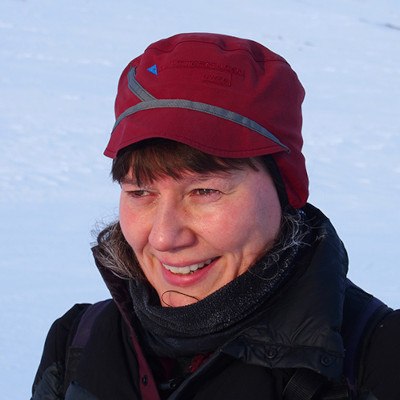A research team in Svalbard receives a 100,000 euros grant to continue developing an advanced permafrost and meteorological climate change response system in the arctic.
The second Frederik Paulsen Arctic Academic Action Award has been awarded to Professor Hanne H. Christiansen and Associate Professor Marius O. Jonassen in a ceremony at the Arctic Circle Assembly in Reykjavík. Their winning project aims to develop an advanced permafrost and meteorological climate change response system in order to build resilience in Arctic communities.
The PermaMeteoCommunity project focuses on building a real-time response system which connects direct observations from boreholes and small-scale meteorological stations with an online platform that receives and displays all the data in near real time.
The system can be used for decision making and meaningful action by local authorities during operational evaluations and extreme weather events, and also in designing local infrastructure and overall land area planning. In addition to serving authorities, the data is highly beneficial for the students and researchers living in Svalbard.
Jonassen and Christiansen are happy to see their efforts receive recognition in the form of the Award. “It is extremely important that what we are developing here for the main settlement of Longyearbyen in Svalbard, with respect to handling the effects of climate change on permafrost and its potentially hazardous impacts on society, is recognized as an important action.”
The award is named after Frederik Paulsen, who for decades has been a prominent supporter of scientific research and collaboration on the polar regions. The award is designed to recognize scientific and academic initiatives that are action-oriented and hold potential for addressing the challenges and critical needs posed by climate change.
It provides high-level recognition for innovative ideas that transform knowledge into action to help address the impacts of climate change in the Arctic. The prize comes with a 100,000 euro unrestricted grant that is intended to help develop the ideas through outreach, engagement, and communication.
At the Award Ceremony Frederik Paulsen stated: ”I am pleased to support this project. It has a clear objective in advancing climate change research and mitigation, and it is also beneficial to the local community through concrete action and collaboration with them. This is highly important in creating real impact.”
Source:Arctic Circle

